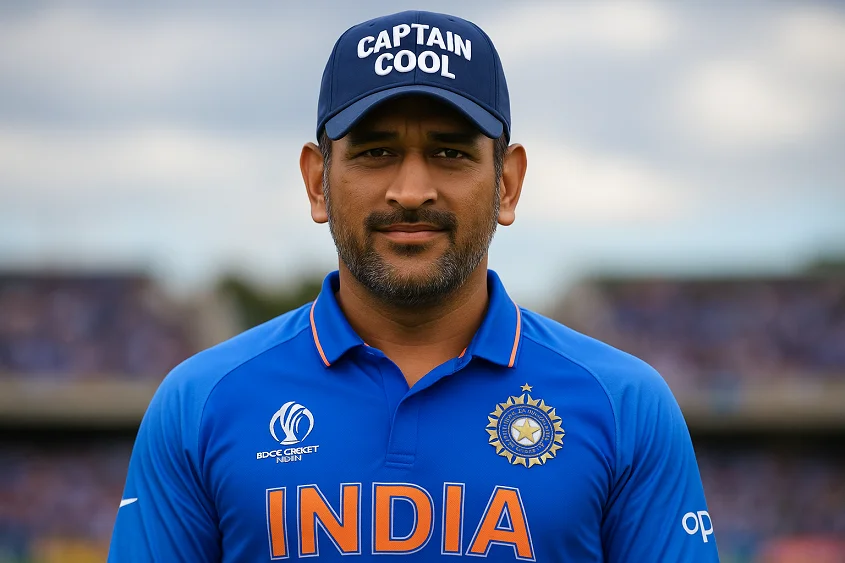Patent Validity in India: Ensuring Your Intellectual Property
- Updated on: Jan 11, 2025
- Read 12 minutes
- Published on Jan 11, 2025
Patent validity refers to the legal status of a patent and whether it is enforceable or can be challenged. In India, the validity of a patent is determined by the Indian Patent Office or the courts. Patent holders need to ensure the validity of their patents to protect their intellectual property rights.
Factors Affecting Patent Validity
Several factors can affect the validity of a patent in India. These include:
Novelty: A patent must be novel, meaning it is new and not already known or disclosed.
Inventive Step: The invention must involve an inventive step, meaning it is not obvious to someone skilled in the field.
Industrial Applicability: The invention must be capable of being made or used in an industry.
Non-Obviousness: The invention must not be obvious to a person skilled in the field.
Challenging Patent Validity
Patent validity can be challenged through various means, such as filing a post-grant opposition, filing a revocation petition, or initiating a legal proceeding in court. Potential challengers need to gather evidence and present strong arguments to support their claim of invalidity.
Ensuring the validity of a patent is crucial for protecting intellectual property in India. Patent holders should understand the factors that affect validity and be prepared to defend their patents against any challenges. By doing so, they can safeguard their innovations and maintain their competitive advantage in the market.
Importance of Patent Validity
Ensuring the validity of a patent is crucial for protecting intellectual property rights in India. Patent validity refers to the legal status of a patent, which determines whether the patent is enforceable and can withstand legal challenges. Patent holders need to ensure that their patents are valid to prevent others from infringing on their rights and to maintain exclusivity in the market.
One of the key reasons why patent validity is important is that it provides legal protection against unauthorized use, manufacturing, or sale of the patented invention. A valid patent grants the patent holder the exclusive right to use, make, or sell the patented invention for a specific period. This exclusivity allows the patent holder to commercialize their invention and gain a competitive advantage in the market.
Moreover, a valid patent acts as a valuable asset that can be licensed or sold to generate revenue. Companies or individuals who hold valid patents can enter into licensing agreements with other parties, allowing them to use the patented technology in exchange for royalties or other forms of compensation. This not only provides a source of income for the patent holder but also promotes innovation and collaboration.
Additionally, patent validity is crucial for enforcing patent rights and taking legal action against infringers. If a patent is found to be invalid, it can significantly weaken the patent holder’s ability to protect their intellectual property. Valid patents, on the other hand, provide a strong legal basis for pursuing legal remedies, such as injunctions or damages, against infringers.
In conclusion, ensuring the validity of a patent is essential for safeguarding intellectual property rights and reaping the benefits of innovation. Patent holders should take proactive measures to ensure that their patents meet the requirements and are legally enforceable to maximize their competitive advantage and protect their inventions.
Legal Framework for Patent Validity in India
The legal framework for patent validity in India is governed by the Patents Act, of 1970. This act provides the foundation for the grant and protection of patents in the country. The Act establishes the criteria for patentability, the procedure for filing patent applications, and the grounds for patent invalidation.
Under the Patents Act, an invention is eligible for patent protection if it is new, involves an inventive step, and is capable of industrial application. The Act also excludes certain subject matters from patentability, such as inventions that are contrary to public order or morality, methods of agriculture or horticulture, and computer programs.
Once a patent is granted, its validity can be challenged through various legal mechanisms. The Act provides grounds for revocation of a patent, including lack of novelty, obviousness, insufficiency of disclosure, and non-patentable subject matter. Interested parties can file a revocation petition before the Intellectual Property Appellate Board (IPAB) or approach the High Court for patent invalidation.
The legal framework for patent validity in India aims to strike a balance between encouraging innovation and protecting the rights of inventors. It provides a robust system for granting and challenging patents, ensuring that only valid and deserving inventions receive protection.
Challenges in Establishing Patent Validity
Prior Art
Prior art refers to any existing knowledge or information that is relevant to a patent application. It includes any publicly available documents, such as scientific papers, patents, or other publications, that disclose similar inventions or technologies. The purpose of considering prior art is to determine the novelty and inventiveness of the claimed invention. In India, the Indian Patent Act mandates the examination of prior art during the patent application process. The patent examiner searches to identify any existing patents or publications that may invalidate the patent application. If the examiner finds prior art that is anticipatory or renders the claimed invention obvious, the patent application may be rejected. Therefore, inventors and patent applicants must conduct a thorough prior art search before filing a patent application to ensure the validity of their intellectual property. This can be done by engaging the services of a professional patent search firm or conducting a search through online databases and resources.
Non-Obviousness
For a patent to be valid in India, it must meet the requirement of non-obviousness. This means that the invention must not be obvious to a person skilled in the art, based on the existing knowledge and technology. The Indian Patent Act provides guidelines to determine whether an invention is non-obvious. These guidelines consider factors such as the difference between the invention and the existing knowledge, the level of skill in the art, and the presence of any unexpected or surprising results. Non-obviousness is an important criterion for patentability as it ensures that patents are granted only for inventions that involve a significant inventive step and contribute to the advancement of technology. It prevents the granting of patents for trivial or obvious inventions that would hinder innovation and competition. Patent applicants in India need to carefully demonstrate the non-obviousness of their inventions through a thorough examination of the prior art and by providing evidence of the inventive step involved.
Inadequate Description
Inadequate description is one of the common grounds for challenging the validity of a patent in India. According to the Indian Patents Act, a patent must include a description of the invention that is sufficient to enable a person skilled in the art to practice the invention. This means that the description should provide enough detail and clarity for someone knowledgeable in the field to replicate the invention without undue experimentation. If the description is vague, incomplete, or ambiguous, it may render the patent invalid. Clear and precise language is crucial when drafting the description of a patent to ensure its validity. Additionally, the description should also disclose the best method of performing the invention known to the applicant at the time of filing the patent application. Failure to disclose the best method may also lead to the invalidation of the patent. Patent applicants need to ensure that their descriptions are comprehensive, accurate, and meet the requirements set forth by the Indian Patents Act to protect their intellectual property rights effectively.
Strategies for Ensuring Patent Validity
Thorough Prior Art Search
A thorough prior art search is crucial in ensuring the validity of a patent in India. Before filing a patent application, it is important to conduct a comprehensive search to identify any existing inventions or technologies that may be similar or identical to the invention being claimed. This search helps in determining if the invention meets the criteria of novelty, inventive step, and industrial applicability, which are essential for patentability.
The prior art search involves examining various sources such as patent databases, scientific literature, technical journals, and other publicly available information. It is important to use reliable and up-to-date sources to ensure that all relevant prior art is considered.
Additionally, engaging the services of a professional patent search firm or a patent attorney with expertise in conducting prior art searches can greatly enhance the quality and effectiveness of the search. These professionals have access to specialized databases and resources that may not be readily available to the general public.
By conducting a thorough prior art search, patent applicants can identify any potential obstacles or challenges that may arise during the patent examination process. It allows them to evaluate the strength of their invention and make any necessary modifications or improvements before filing the patent application.
Overall, a thorough prior art search is a critical step in the patent application process in India. It helps ensure the validity of the patent and increases the chances of obtaining a strong and enforceable patent that provides adequate protection for the inventor’s intellectual property.
Clear and Comprehensive Patent Application
A clear and comprehensive patent application is crucial for ensuring the validity of your intellectual property in India. When filing a patent application, it is important to provide a detailed description of your invention, including its technical features, functionality, and any unique aspects that differentiate it from existing technologies. This includes providing clear and concise drawings, diagrams, and examples to support your claims. Additionally, it is essential to clearly define the scope of your invention and the specific claims you are making. This will help prevent any ambiguity or confusion during the examination process and increase the chances of your patent being granted. By submitting a clear and comprehensive patent application, you can significantly enhance the validity of your intellectual property and protect your rights in India.
Expert Patent Prosecution
When it comes to patent prosecution in India, it is crucial to have an expert by your side. The process of obtaining and defending a patent can be complex and time-consuming, requiring in-depth knowledge of the legal and technical aspects. An expert patent attorney or agent can help navigate through the intricacies of the Indian patent system, ensuring that your intellectual property is protected and your patent application is properly drafted and prosecuted.
Why is expert patent prosecution important?
Maximizing patent protection: An expert patent prosecutor can help identify the broadest possible scope of protection for your invention, ensuring that your patent rights are strong and enforceable.
Avoiding legal pitfalls: Patent prosecution involves interacting with the Indian Patent Office and responding to office actions. An expert can help you understand and comply with the legal requirements, minimizing the risk of rejection or invalidation.
Efficient and effective prosecution: With their knowledge and experience, an expert patent attorney can streamline the patent prosecution process, saving you time and resources.
Choosing the right expert
When selecting a patent attorney or agent, consider the following factors:
Experience: Look for professionals with a proven track record in patent prosecution in India.
Technical expertise: Ensure that the expert has a deep understanding of the relevant technology area.
Communication skills: Effective communication between you and your patent attorney is crucial for a successful prosecution.
Reputation: Check the reputation and client testimonials of the expert to gauge their credibility.
In conclusion, expert patent prosecution is essential for ensuring the validity and protection of your intellectual property in India. By working with an experienced and knowledgeable patent attorney or agent, you can navigate the complexities of the Indian patent system with confidence and maximize the value of your inventions.
Importance of Patent Validity for Intellectual Property Protection
Patent validity is crucial for ensuring the protection of intellectual property in India. A patent grants exclusive rights to an inventor or assignee for a specific invention, preventing others from making, using, or selling the patented invention without permission. Maintaining a valid patent is essential for safeguarding the investment made in research and development, as well as for monetizing the invention through licensing or commercialization. Without a valid patent, competitors can freely replicate and exploit the invention, leading to a loss of market share and potential revenue. Patent validity also plays a significant role in attracting investors and securing funding for innovative projects, as investors are more likely to support ventures with protected intellectual property. In addition, a valid patent serves as a deterrent against potential infringers, as it provides legal recourse to the patent holder in case of infringement. Therefore, ensuring patent validity is vital for protecting intellectual property rights and promoting innovation in India.
Need for Continuous Monitoring and Maintenance of Patents
Patents are valuable assets that provide exclusive rights to inventors and protect their intellectual property. However, obtaining a patent is not the end of the journey. Continuous monitoring and maintenance of patents is crucial to ensure their validity and enforceability.
One of the main reasons for continuous monitoring is to identify any potential infringements on the patented invention. Infringement can occur when a third party uses, makes, sells, or imports a product or process that falls within the scope of the patented claims. By monitoring the market and keeping track of competitors, patent owners can detect any unauthorized use of their invention and take appropriate legal action.
Another important aspect of continuous maintenance is to keep the patent in force by paying the required fees and meeting the necessary deadlines. In India, patents have a maximum validity of 20 years from the date of filing, subject to the payment of annual renewal fees. Failure to pay these fees or comply with other maintenance requirements can result in the patent becoming invalid.
Furthermore, continuous monitoring and maintenance help patent owners stay updated with the latest developments in their field of technology. This allows them to identify new opportunities, explore potential collaborations, and make informed decisions regarding their intellectual property.
In conclusion, continuous monitoring and maintenance of patents are essential to protect the rights of inventors and ensure the validity and enforceability of their intellectual property. By actively monitoring the market, maintaining the patent’s legal status, and staying informed about industry trends, patent owners can maximize the value of their inventions and safeguard their competitive advantage.
Role of Patent Attorneys in Ensuring Patent Validity
Patent attorneys play a crucial role in ensuring the validity of patents in India. They are legal professionals with specialized knowledge and expertise in intellectual property law. Their primary responsibility is to assist inventors and companies in obtaining and protecting their patents. Patent attorneys help in the process of drafting and filing patent applications, conducting prior art searches to assess the novelty of an invention, and evaluating the patentability of an invention based on existing laws and regulations. They also play a key role in defending patents against any challenges or invalidity claims. In case of disputes or infringement issues, patent attorneys provide legal advice and represent their clients in court proceedings. Their in-depth understanding of patent laws and regulations, as well as their ability to navigate the complex patent system, make them essential in ensuring the validity and protection of intellectual property in India.










No comment yet, add your voice below!